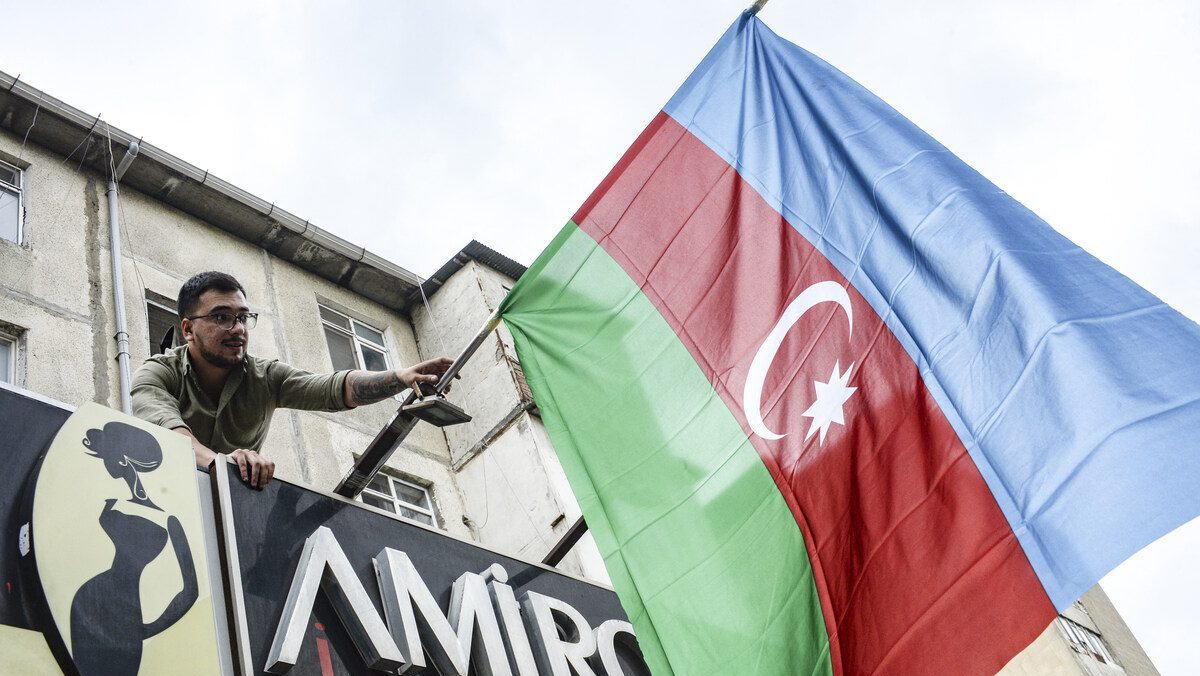
A resident of the Azerbaijani capital hangs a state flag in Baku on September 20, 2023, in support of the country’s offensive in Nagorno-Karabakh region. Separatists in Nagorno-Karabakh and Azerbaijan announced on September 20, 2023 they would cease hostilities, signalling the end of an “anti-terror” operation launched just one day earlier by Azerbaijan.
Photo: TOFIK BABAYEV / AFP
Ethnic Armenian forces on Wednesday agreed to a Russian proposal for a ceasefire in Nagorno-Karabakh on Wednesday, September 20th, just one day after Azerbaijan launched a military assault—or what the country called an ‘anti-terror’ operation—against the Armenians living in the enclave, and struck the region with artillery.
During Baku’s military offensive, which they claimed to have initiated as a result of the deaths of six people at the hands of Armenian ‘separatists,” some 32 people were killed and hundreds more were injured. The ceasefire, which only was agreed upon after Azerbaijani forces made significant gains in the area, was set to begin at 13:00 local time Wednesday, the Nagorno-Karabakh Presidential Office announced.
“An agreement was reached on the withdrawal of the remaining units and servicemen of the armed forces of Armenia from the deployment zone of the Russian peacekeeping troops, the dissolution and complete disarmament of the armed formations,” the office confirmed.
The presidential office also verified that Azerbaijani forces had caused Armenian casualties and had taken control of strategic positions in the region.
“Regrettably, the Defense Army has casualties too, while in some parts the enemy succeeded in penetrating into Defense Army outposts, capturing several heights and strategic road junctions,” the office said in a statement.
Azerbaijan’s Ministry of Defense, for their part, said in a statement: “The ethnic Armenian leader has agreed to lay down their weapons, leave their combat positions and military posts, and disarm completely. Units of the Armenian armed forces [will] leave the territories of Azerbaijan, illegal Armenian armed groups [will be] dissolved.”
Russia’s Interfax news agency also reported that an agreement between the two parties was reached to withdraw Armenia’s remaining military units. It remains uncertain, however, whether the agreement will be actualized. Since the fall of 2021, Armenian authorities have insisted that they have no troops in the region.
The ceasefire raises serious concerns about the future of some 120,000 ethnic Armenian residents in the region, who make up the region’s majority, and for the past thirty years have maintained their autonomy from Baku.
